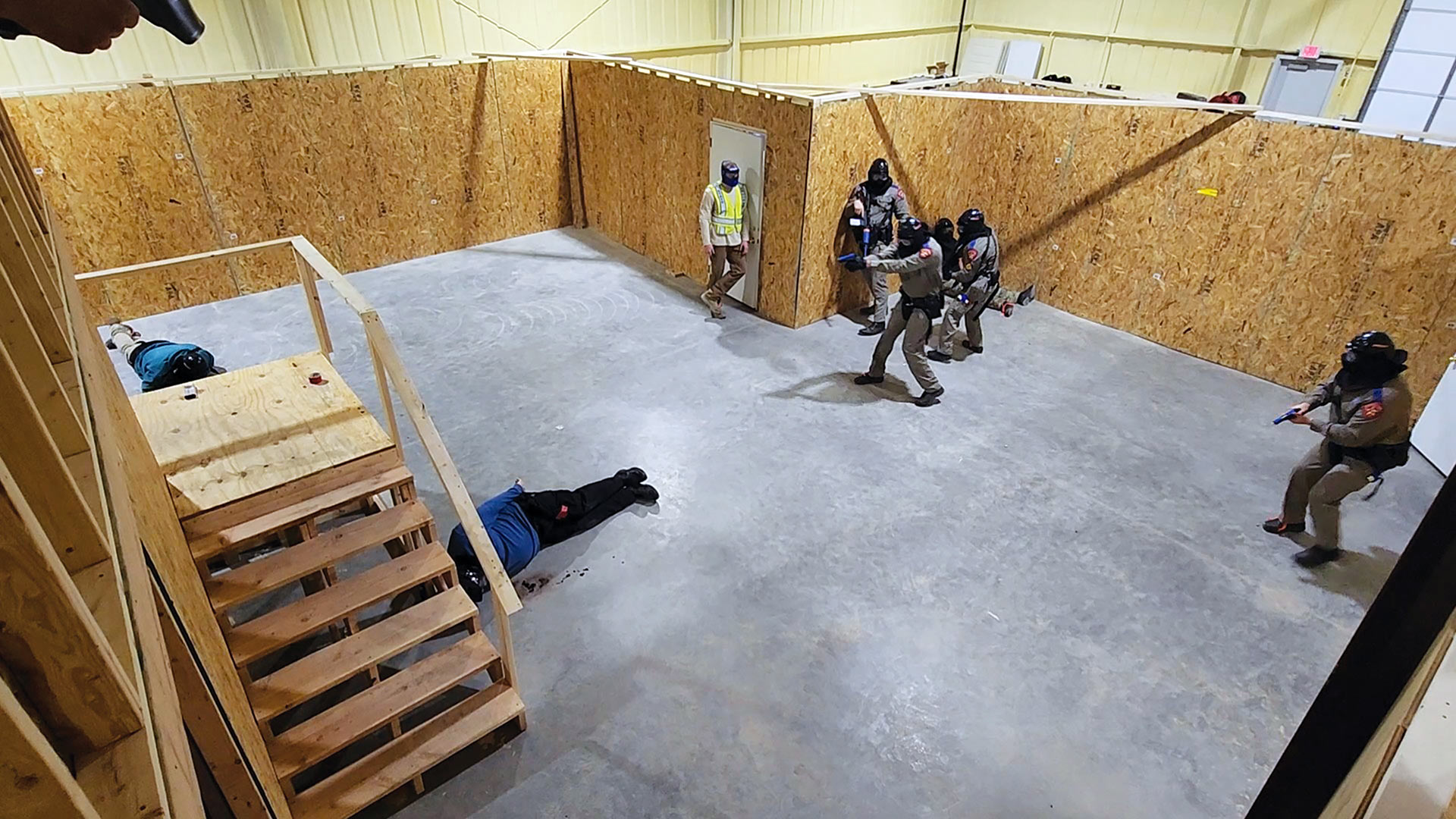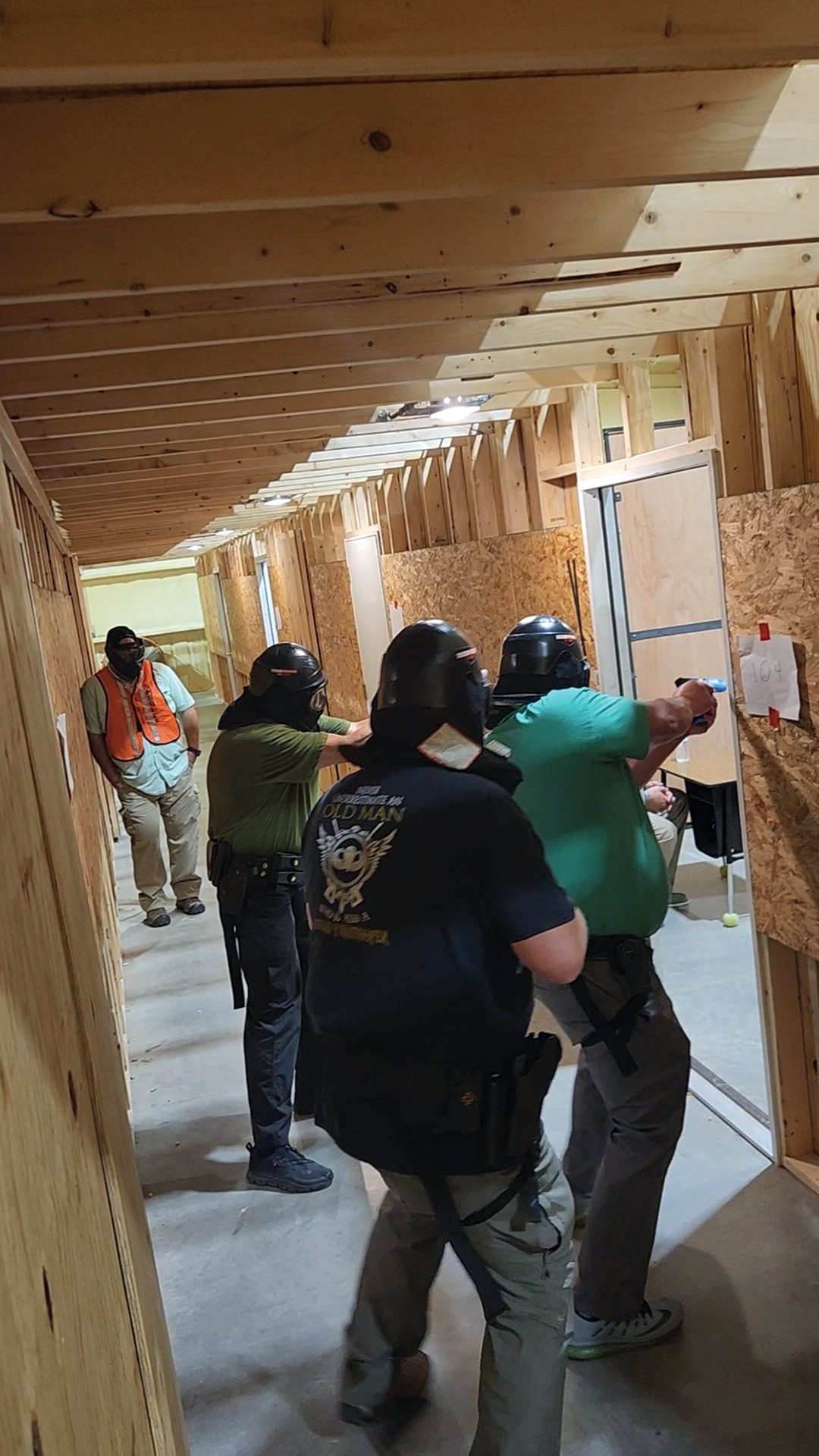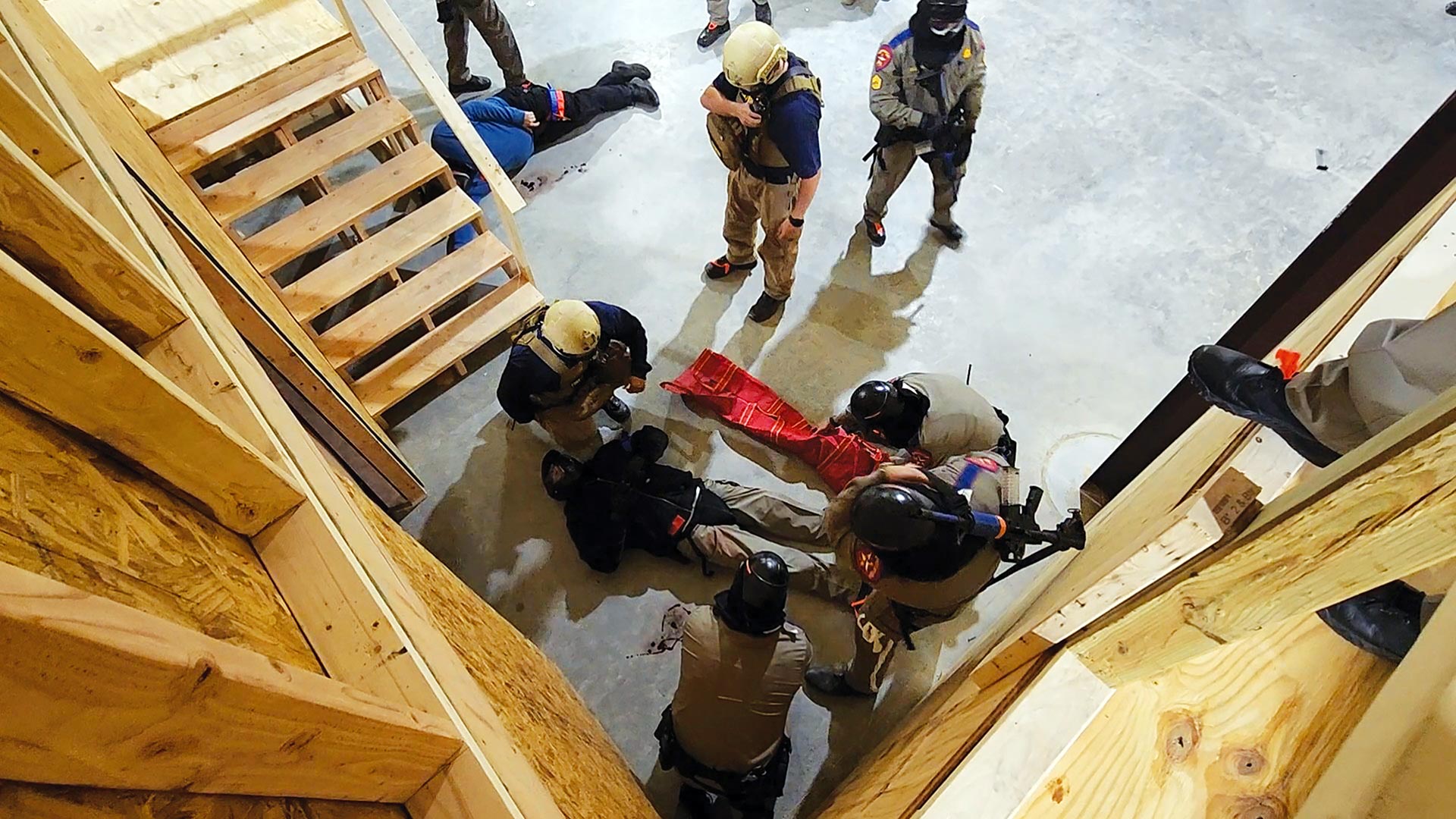
Just as well-designed and executed scenarios can enhance our training programs, poorly designed scenarios can cause tremendous damage. There is more to executing quality reality-based training than just making up a scenario. Unfortunately, too many trainers try to employ reality-based training without fully understanding the process.
It is imperative the entire training team be briefed on and understand the scenario, the safety protocol and the testing standard or training objectives.
Training versus testing
Let’s begin by considering our goals. Are we training, or are we testing? A scenario without coaching and repetition is a test of skills. If coaching and repetition are not provided, it is not training. It’s a test. Although debriefing officers immediately after a scenario can be tremendously beneficial, without coaching and repetition, officers are not given the opportunity to practice their skills over time.
Here’s where I may hurt some feelings. If instructors are not providing training through coaching and repetition, they aren’t instructors. A more accurate title would be evaluators or test proctors. There is a time and place for this type of testing. But don’t fool yourself into thinking officers are receiving training value if the “instructors” only provide criticism without the ability for officers to put their new knowledge or skill into practice through repetition.
Safety
During scenario training, we have witnessed some horrifying safety protocols. Fortunately, nothing bad resulted from those we have seen, but we’re not even sure the trainers were aware that problems occurred. This is a huge problem for many law enforcement agencies. Instead of getting instructors properly trained up, they rely on firearm instructors or SWAT personnel to run scenario training. Those folks may be qualified if they are properly trained to help facilitate scenario training. But just because they’re firearm instructors or SWAT guys doesn’t mean they know what they’re doing when running force-on-force or other types of scenario training.
Safety needs to be a priority. Check, check again and then have someone else check. Never sacrifice the safety of officers during a training event just to save time. Train the trainers, not only in the performance objectives, but in proper safety protocols as well. All training staff need to be on the same page. A significant amount of law enforcement training is done by committee. It’s the nature of the beast. For many departments, shift work and rotating schedules mean different trainers will be used to train different groups of officers. That’s why it is imperative the entire training team be briefed on and understand the scenario, the safety protocol and the testing standard or training objectives.
Role-players can make or break reality-based training. Make sure they are well informed and suited for the role. They need to stick to the script. This is not the time for improvisation. The quality of the training experience and the safety of all involved are on the line.

Designing scenarios
Instructors need to be well-versed in adult learning principles. They need the ability to apply the six laws of learning to create long-term learning and retention of skill. These laws form the bedrock of learning and can be used to design scenarios that are more than “check-the-box” training
The six laws of learning are well-researched principles from neuroscience, cognitive psychology and educational theory. They are:
- Law of Readiness: Learning occurs when the student is mentally and physically prepared.
- Law of Exercise: Repetition strengthens learning, making recall and performance easier.
- Law of Effect: Positive reinforcement encourages students to retain information and behaviors.
- Law of Primacy: The first thing a learner experiences will be remembered best and longest.
- Law of Recency: The most recent learning is often remembered better than earlier content.
- Law of Intensity: A more intense or emotionally impactful experience leads to deeper learning.
Applying the laws of learning, instructors can keep in mind that scenario training is not an outcome-based exercise. The objective is to bring real-world conditions to a safe training environment. But in reality-based training, as in life, the people involved are dynamic. Often, there is more than one appropriate solution to a problem. For example, do not design a scenario to elicit a specific response — e.g., pepper spray — when there are several reasonable force responses that may be acceptable. Ultimately, scenarios train decision-making.
Outcome-based scenarios direct the focus toward obtaining a desired result instead of encouraging officers to focus on solving the problem. A reasonable decision and response within law and policy should be considered a successful resolution. Just because it’s not the way an instructor may have done it doesn’t mean it’s wrong. Let the experience and training of the officers guide them toward a reasonable conclusion.
All scenarios need to be thoroughly vetted. Once the “perfect” scenario and script has been created, it should be examined and scrutinized by the entire training team. Accept that something was missed and strive to find those errors. If subject-matter experts are available, instructors should swallow their egos and utilize those resources. Remember: what we do in training is what we get on the street.
There is nothing easy about developing scenario training, so don’t squander the hard work of the instructors by compromising quality for the sake of convenience. If proper equipment or staffing is not available, the scenario should be changed. For example, if you set a scene where deadly force is an acceptable response, do not send your officers in with blue handles. This is the time and place for marking cartridges. If these aren’t available, redesign the scenario so deadly force isn’t an acceptable option. The last thing you want to happen on the street is for an officer you trained to simulate the use of their weapon when they truly need it. If you don’t think this can happen, look up the definition of a conditioned response.
In our enthusiasm, it is easy to create an overly complicated script rather than keeping it simple. Everyone is trying to do more with less, and it may seem like a good idea to pile a lot of objectives into one scenario. This is a recipe for failure. Focus on a few key points at a time. Think of a scenario as a machine — the more moving parts it contains, the more likely something will go wrong. Our objective is to bring the street to training, so let officers respond as they would on the street. Don’t set up unrealistic responses to mundane calls. If regular staffing levels would result in a one-officer response, then don’t design a scenario requiring a multiple-officer response. However, consider including the use of regular communication procedures between officers as well as dispatchers in all scenarios.

Debriefing
Aside from safety issues, the single biggest failure we see during scenario training is poorly run debriefs. The debriefing is where learning occurs. Far too often, instructors deem the response appropriate, skip the debrief and go to the next scenario. Realistic scenario training is one of the best ways to accomplish long-term learning goals in a short amount of time. A realistic scenario that is properly run and debriefed provides a safe training environment for officers to learn, practice and experiment with different methods to bring those tense and rapidly evolving situations to a successful conclusion.
Creating well-designed and run scenarios is difficult, but the value can be immense. Before diving in headfirst, do the research. There are several good training resources available, including the godfather of scenario training, Ken Murray, and his book, Training at the Speed of Life. Design, safety and debriefing could be considered the holy trinity of scenario training. Lives are on the line. Let’s do it right.
As seen in the January 2025 issue of American Police Beat magazine.
Don’t miss out on another issue today! Click below:






